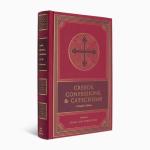This post is part of a series walking through the third volume of Abraham Kuyper’s Common Grace
Beginning with a recap of the previous post, Kuyper reminds us that the Christian family is a “higher” version of something that is naturally shared by all peoples. We say Kuyper walk through the “moral” version of a “Christian family.” In this chapter, he turns to the second type of a “Christian family:” that of a “house church.” This happens
“only when the head of the household confesses Christ as Lord and King and maintains the service of Christ in his family.” (363)
The previous type of Christian family with its “threefold moral foundation” has nothing to do with the faith–one may live in such a “Christian” family and not be a believer, while one may be a believer and not be a part of a family. This is not the case with the second type, which is a part of particular grace. This is not an “alien” function–the family was intended for worship. We see this in Joshua in the Old Testament.
This was the only place the institutional church existed pre-Pentecost. Also, we see the family is from creation but fallen, while government is only common grace-born after the Fall. So the government is not passed on by “paternal authority.” Otherwise it would also have a churchly function. So government should stay out of the church and the family, since “what springs directly from creation cannot be part of the government because the creation order knows no government.” (365) This too was corrupted by sin, as we see with Laban.
The corruption of sin continues in non-Christian families, be it through naturalism or ancestor worship or health and business worship, the family in each case yearns for a higher purpose. Only the most isolated Africa and the most affluent Europe are free from this yearning.
The Gospel raises and refines this yearning into the worship of God, and when conversion happens the household becomes a church–albeit one “grounded in infant baptism and… also in the marriage vows.” The Gospel is required here. This is the narrower sense of “Christian family.” (368)
The government only has to do with the first definition of “Christian family,” not the second. The family has both civic and religious callings, so common grace and particular grace come together in the family and rely on consecrated marriage and infant baptism. Both civic and religious functions may operate separately, to our shame. But when we see them flourish together we see the Christian family as it should be, and all things are accordingly elevated. (369)
We’ll see more on this next time, but as a Baptist I do have to point out that if Kuyper’s view of a “Christian family” in the non-moral sense is built on infant baptism, it’s built on the sand. But we’ll see where he goes with that in the next few chapters.
Dr. Coyle Neal is co-host of the City of Man Podcast an Amazon Associate (which is linked in this blog), and an Associate Professor of Political Science at Southwest Baptist University in Bolivar, MO













